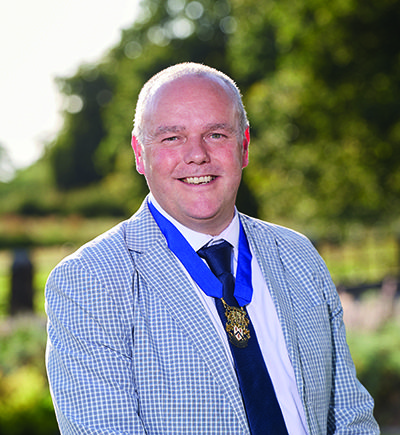Craig Tickner: ‘I am living proof that you don’t need to have a degree’
Craig Tickner: ‘I am living proof that you don’t need to have a degree’
04 March 2021
The president of the Chartered Institute of Legal Executives tells Catherine Baksi how he worked his way into the law after being rejected by the RAF

Craig Tickner left school with no qualifications and has never been to university, but he bought his first home at 24 and is an advocate and partner at a criminal defence specialist law firm in Bristol.
A fellow and president of the Chartered Institute of Legal Executives, Tickner, 49, is passionate about the opportunity afforded by the institute to open up legal careers to a broader and more diverse range of people, who can earn while they learn instead of being saddled with debt.
He applied twice for a place on a civil aviation flying course with British Airways, but was again rejected on medical grounds.
“It was a huge blow,” Tickner says. With no plan B, he lost his motivation to study and left school two years later with only his sporting colours. While his friends were going to university, Tickner had no job and was living at home with his parents.
A job centre advertisement for a “lowly admin grade job” with the Crown Prosecution Service (CPS) caught his eye and after being appointed he gradually progressed through the ranks. At the same time, Tickner took advantage of CPS sponsorship to complete a paralegal course, gain A-levels and take the first-level legal executive exams.
He bought his first house and a year later reached the highest grade at the CPS possible without having formal legal qualifications. At a work cricket match, he met Aidan Woods, the head of a local criminal defence firm, who offered him a job.
The offer coincided with the CPS’s decision to withdraw funding for his continued studies. He joined Aidan Woods & Co as an outdoor clerk, becoming an accredited police station representative before continuing with legal executive training, paid for by the firm.
By the time he had passed all his exams and become a fellow, the rules had changed to give legal executives the right to practise litigation and advocacy independently, giving them parity with solicitors.
There is snobbery in the Bar and judiciary, says Tickner, and a “clear pecking order” in the legal profession, with legal executives at the bottom. However, he says, that’s changing.
“I introduce myself as a lawyer, as it’s a term that people understand,” he says, adding that most court colleagues assumed he was a solicitor until he became president of the institute.
He insists that people should be judged on their merit regardless of the route they qualified, and hopes that the redesigned on-the-job training for the institute’s new professional qualification will open the opportunity for a wider talent pool to enter the legal profession.
“There are many reasons why people don’t go to university and if you focus on the need for a degree, you miss a whole lot of talent. I am living proof that you don’t need to have a degree to forge a reasonably successful practice.”
At present, the institute’s fellows are not allowed to be advocates in the crown or higher courts – a rule he would like to see changed.
Tickner does his own advocacy in the magistrates’ courts, but for other work he is a “strong believer in the Bar”.
Accepting that he may upset solicitor-advocates, he says: “I like my crown court clients to be represented by barristers. They are specifically trained for it, and good barristers are worth their weight in gold.”
But he is concerned that “victims and suspects lack justice” at present because funding cuts have led to delays, which in turn have been exacerbated by the coronavirus pandemic.
Tickner explains that it can take months before suspects, who have been “released under investigation” by the police, are even charged.
“Then, if trials take place three years down the line, witnesses’ memories are bound to be affected by the passage of time”. While advocates would not seek to take advantage of that improperly, he says, it allows them a line of questioning that would not otherwise have been open.
“The criminal justice system has been forgotten by successive governments – as a nation we should be ashamed.”
State-funded lawyers who have had no increase in fees since 1998 struggle to get paid by the Legal Aid Agency for the work they have done and do large amounts free of charge.
Firms and lawyers unable to make ends meet are quitting and closing down — and those who are left “feel worn down”.
“When I talk to students, criminal law always piques their interest, but I can’t responsibly encourage them to pursue a career in criminal law,” he says, “as it’s not financially viable.”
Craig Tickner is the President of the Chartered Institute of Legal Executives in England and Wales
Article originally posted on The Times Website: https://www.thetimes.co.uk/article/craig-tickner-i-am-living-proof-that-you-dont-need-to-have-a-degree-0d7qztp90
